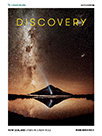Out on the fringes of civilisation throughout much of China’s history, the southwestern province of Guangxi – with Nanning as its capital – feels far removed from the megacities and megabucks of China’s eastern seaboard. But mining, agriculture, food processing, mechanical engineering and leather-making have helped push Nanning’s economy into the number-one spot among the cities in southwest China.
Nanning’s proximity to Vietnam (Hanoi is less than 400 kilometres away, and is connected by train) has made it the gateway to Association of Southeast Asian Nations (ASEAN) markets, with the city hosting the China-ASEAN Expo every year since 2004. Given President Xi Jinping’s ambitious Belt and Road trade initiative unveiled in 2013, Nanning finds itself in a lucrative position – on the frontline of a new era of global trade relations with South East Asia.
At last year’s China-ASEAN Expo, deals were struck in multiple fields with cooperating countries like Cambodia, Indonesia and Thailand. A big boost to Nanning’s burgeoning innovation credentials has also come via its partnership with Zhongguancun in Beijing, a tech zone often dubbed China’s Silicon Valley. Although a relative latecomer to China’s hi-tech industry, Nanning’s own Zhongguancun – a technology hub in the city’s Gaoxin district – is attracting a raft of new start-ups and helping to bump this border city further up the value chain.
Nicknamed the Green City for its tropical flora, city parks and green belts, Nanning is boosting its eco-credentials by developing mandatory green spaces in new buildings and promoting rooftop gardens. A whole new city district, set to open in 2020, will be built around strict eco-credentials and contain a logistics port for trade with South East Asia.
The Person: Fan Lihua
The Zhuang people are the most populous ethnic group in Guangxi province, with a language closely related to Thai. Zhuang brocade, woven cloth renowned for its rich colours and patterns, has been around for many centuries, but fewer people are choosing to wear it these days as it falls out of fashion. That’s a state of affairs Fan Lihua, a fashion designer and entrepreneur from Nanning, is determined to change.

‘My goal is to take Zhuang brocade out of Guangxi and beyond China, to make it known to more people,’ says Fan. Her designs, including wedding dresses and waistcoats that combine decorative elements of Zhuang brocade with contemporary fashion styles, helped her win an arts and crafts award in her hometown, and have served to introduce her innovative designs to a wider audience.
Although not an ethnic Zhuang herself, Fan fell in love with Zhuang brocade while studying fashion design in Nanning. Her early work caught the attention of a renowned brocade artist, Tan Xiangguang, who helped Fan set up her first studio. Today, Fan’s creations can be found in shops throughout the province. They range from everyday clothing that incorporates elements of brocade design to grand wedding dresses to brocaded handbags and even iPad cases.
The Product: Mifpay
Located in Nanning’s Zhongguancun tech hub, Mifpay is a product developer that uses artificial intelligence and big data in mobile apps designed to replace cards or tickets for mass transit systems.
Mifpay is working on ‘body posture recognition’, a smart ID system that uses cameras to analyse the posture and gait of users as they approach the barriers, identifying the person by their walking style and then determining whether they can be granted access.

Mifpay already has a Bluetooth-based app in operation on Nanning’s small but growing subway network, allowing users to wave their phone close to a sensor on the barriers to enter or leave the station and pay for their trip. This app has already amassed a user base of more than a million.
CIO Huang Zicheng says it was a good move to locate the start-up in Nanning. ‘While many of our talents and technologies are from first-tier cities like Beijing and Shenzhen, Nanning has actually given us more space for development.’
Ones to watch
Electronic Citizen Cards
Launched in March 2019, Nanning’s electronic citizen cards combine the identity function of China’s traditional national ID cards with the ability to purchase bus tickets and the like via mobile apps such as WeChat.
JJR Smart Farm Control
Good news for Guizhou’s banana plantations – JJR claims you can manage a 400-hectare farm at the touch of a button, thanks to its smart irrigation and climate systems controlled via mobile phone and cloud computing using an array of sensors.
Nanning Huishi
Originally a developer of unmanned aerial vehicle aviation software, Huishi is now making commercial drones – like the double-blade Flying Wing, which looks much like a stealth craft and can be controlled via laptop.














